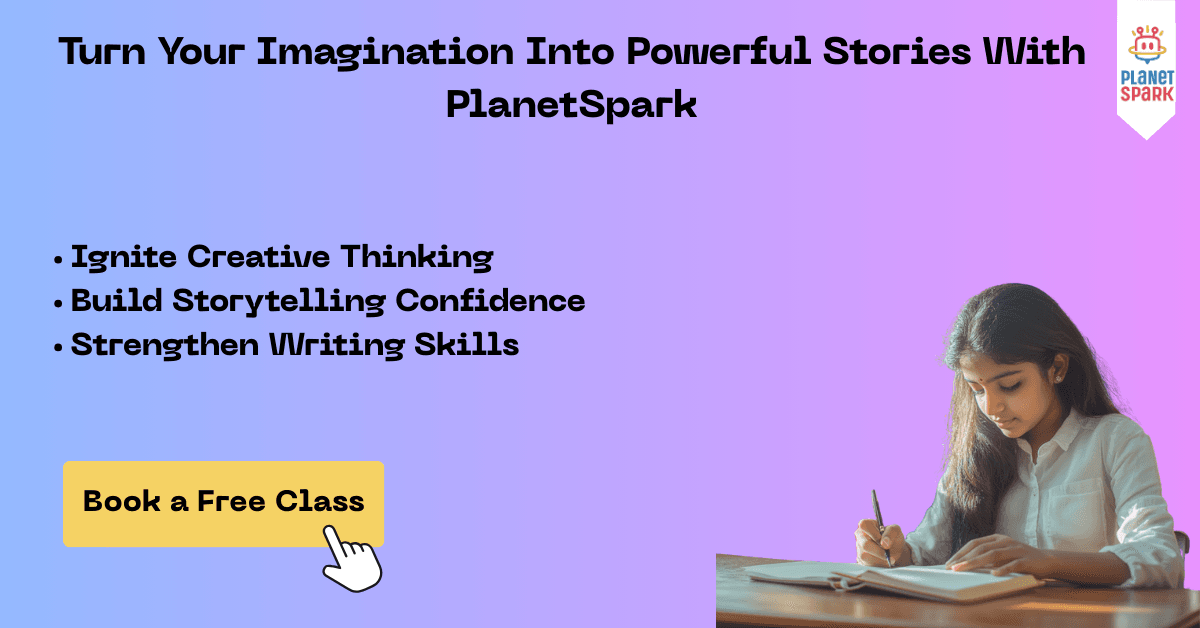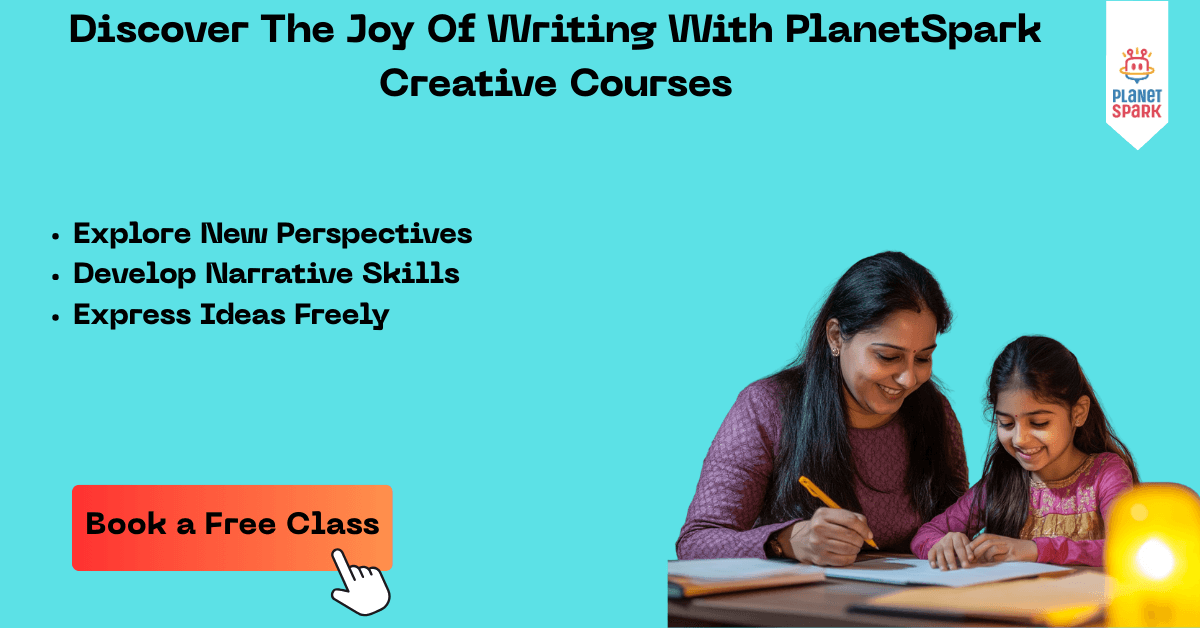The Role of Music in Social Movements and Activism
Last Updated At: 19 Sep 2025
12 min read

Music has always been more than just a form of entertainment. It has served as a powerful tool for expression, resistance, and solidarity across diverse cultures and generations. Whether in the form of anti-war ballads or freedom anthems, music can mobilize people, ignite revolutions, and give a resonant voice to the voiceless. The emotional power of music helps in building unity within communities, inspiring action, and transmitting powerful messages across geographical and cultural divides.
In the context of creative expression, protest music exemplifies how storytelling and lyrical composition can drive change. This is where PlanetSpark's Creative Writing Courses come into play. These courses empower students to craft compelling narratives, persuasive arguments, and emotionally resonant pieces, skills essential not only for songwriting but for all forms of impactful communication. Through PlanetSpark’s platform, young writers can explore how their words can influence society, and even take a free trial session to experience the journey of transformative expression through writing.
The Underrated Power of Protest Music
Music as a Peaceful Protest
Music is often considered a peaceful, non-violent form of protest. Unlike slogans or strikes, protest music weaves emotional narratives and connects deeply with individuals. Lyrics set to powerful melodies can influence minds, offer solace, and motivate people to act. Think of songs like Bob Dylan’s “Blowin’ in the Wind,” which questioned racial injustice and war, or John Lennon’s “Imagine,” which dreamt of a world without conflict. Such music transcends the boundaries of time, remaining relevant across decades.
In India, peaceful protest through music gained visibility during the independence struggle. Patriotic songs like “Vande Mataram” and “Sare Jahan Se Achha” became anthems of unity and resistance against British colonial rule. These songs stirred emotional and nationalistic fervor, encouraging unity and courage.

Music in Global Social Movements
Civil Rights Movement in the United States
One of the most iconic examples of music fueling a social movement is the American Civil Rights Movement. Songs like “We Shall Overcome,” “A Change is Gonna Come” by Sam Cooke, and “Mississippi Goddam” by Nina Simone became the soundtracks of the struggle for racial equality. These songs not only documented the pain and injustice faced by African Americans but also united activists under a shared emotional and political goal.
Anti-Apartheid Movement in South Africa
In South Africa, artists like Miriam Makeba and Hugh Masekela used music to challenge apartheid. Songs like "Soweto Blues" and "Bring Him Back Home" carried coded messages of resistance. These anthems were not only performed within the country but also resonated globally, putting international pressure on the apartheid regime.
Anti-War Protests
During the Vietnam War, anti-war music was instrumental in galvanizing opposition. Tracks like “Fortunate Son” by Creedence Clearwater Revival and “Give Peace a Chance” by John Lennon expressed widespread disillusionment and resistance. These songs fueled protests on college campuses, in public rallies, and across international media.
Feminist Movements
The feminist movement has also used music to highlight gender inequality and promote women’s rights. Songs like "Respect" by Aretha Franklin and "I Am Woman" by Helen Reddy became empowering anthems. More recently, global artists like Beyoncé and Lady Gaga have promoted feminism and body positivity through their lyrics and performances.
Curious about how PlanetSpark builds creative writing skills? Sign up for a free trial session and see the difference.
The Power of Music in Indian Social Movements
Music has long been a force for change in India’s complex socio-political landscape. From the freedom struggle to present-day movements, songs have inspired action, preserved identity, and united people across caste, class, and region. Indian protest music is diverse in language, genre, and intention, but it shares a common goal: to amplify unheard voices.
Here’s a deeper look at how music has influenced social movements across India:
1. Dalit Rights Movement
Kabir Kala Manch: This cultural troupe from Maharashtra gained prominence for its bold, anti-caste performances. Their songs, inspired by Bhakti poets like Kabir and Ambedkarite ideology, challenge caste hierarchies and mobilize the youth.
Message through music: Their lyrics talk about everyday injustices faced by Dalits — from untouchability to police brutality — giving voice to the marginalized.
Impact: Despite state scrutiny and arrests, their underground performances continue to spread awareness and spark debates on caste oppression.
2. Farmers’ Protest (2020–2021)
Grassroots expression: During the nationwide protest against the farm laws, music became a powerful communication tool. Songs in Punjabi, Haryanvi, and Hindi reflected the farmers’ pain, hope, and unity.
Artists involved: Popular Punjabi singers, such as Kanwar Grewal, Ranjit Bawa, and Aman Yaar, released songs that instantly went viral, garnering millions of views on platforms like YouTube.
Protest sites turned musical stages: Music was played on loudspeakers at Tikri and Singhu borders to energize protesters and convey solidarity.
Message: These songs criticized corporate control of agriculture, appealed to national unity, and reminded listeners of farmers’ contributions to the nation.
3. Tribal and Cultural Revival Movements
Jharkhand, Odisha, Chhattisgarh: Tribal activists use music to resist environmental destruction, forced displacement, and the erosion of indigenous culture.
Musical instruments and folk songs: Traditional instruments like mandar, dhol, and tamaak accompany protest songs that narrate stories of forest rights, land grabs, and exploitation by large corporations.
Awareness through folk traditions: These performances are not just entertainment — they are deeply political acts rooted in oral history and cultural survival.
4. Women’s Rights and Anti-Violence Campaigns
Street performances: Feminist groups like Pinjra Tod have used protest songs during marches and sit-ins to fight patriarchy and call for gender justice.
Viral digital songs: After the 2012 Nirbhaya case, songs and poems condemning gender-based violence were widely shared on social media, helping sustain public anger and pressure for legal reform.
5. Environmental Movements
Chipko Movement (1970s): Folk songs played a crucial role in spreading awareness and mobilizing villagers to protect trees from deforestation in Uttarakhand.
Contemporary climate activism: Youth-led groups are creating eco-conscious rap, spoken word, and music videos highlighting the urgency of environmental protection.
Encourage original thinking and strong writing with PlanetSpark’s classes. Begin with a free creative writing trial class.
Why Music Resonates in Social Movements
Emotional Connection
Music reaches the heart before it reaches the brain. A strong beat or powerful chorus can communicate complex emotions more effectively than a lengthy speech. This makes it a powerful weapon in social activism.
Collective Identity
Songs sung by a group, whether at a protest march or a sit-in, help create a shared identity. It fosters solidarity, courage, and collective action, even in the face of adversity.
Accessibility and Memorability
Unlike speeches, which can be long and forgettable, songs are often short, catchy, and easy to remember. Their rhythm and repetition make them ideal for spreading messages across wide and diverse populations.
Media Amplification
In today’s digital age, music spreads across the world in seconds. Social media, streaming platforms, and viral videos help protest music reach audiences beyond borders. This global reach can amplify a movement’s impact and bring in international attention and solidarity.
Watch your child build imagination and writing skills with PlanetSpark’s Creative Writing Course. Book a free trial session today.
The Role of Music in Online Movements
As activism has increasingly moved into the digital world, music has followed closely behind. Online platforms have become a fertile ground for protest music to grow and spread. Hashtags combined with compelling protest songs can turn into powerful digital campaigns. Artists and everyday users now release songs on platforms such as YouTube, Instagram Reels, and TikTok that go viral in hours, igniting online conversations and sparking awareness globally.
These platforms enable protest music to bypass traditional gatekeepers like record labels or state-controlled media. Songs uploaded by independent voices gain momentum through likes, shares, and comments. This peer-driven popularity often turns them into unofficial anthems of movements. Online protest music not only rallies support but also empowers marginalized communities to voice their truths without physical boundaries. Digital platforms also allow for instant feedback and remixing, creating participatory content where communities collaborate to reinforce their shared resistance.
Examples include:
The Black Lives Matter movement in the US experienced a surge in protest music through platforms like Spotify and YouTube. Songs like "This Is America" by Childish Gambino drew global attention to racial injustice and police brutality, blending art and activism into a viral, thought-provoking format.
In India, the anti-CAA-NRC protests brought protest music to the streets and the screens. Songs like "Azadi", popularised at rallies and across social media, became cultural markers of dissent. They were widely circulated on Twitter, WhatsApp, and Instagram, engaging youth and encouraging informed discussion.
Through hashtags, lyrics, and powerful visuals, protest music in the digital space bridges distances, accelerates awareness, and helps unify fragmented voices into collective action.
Give your child the tools to express creatively through writing. PlanetSpark’s free trial session is the first step.
Music as a Cultural Archive of Resistance
Music is more than just sound; it's a historical record. Protest songs preserve the emotions, thoughts, and stories of resistance movements. They act as oral documentation, carrying forward messages across generations. Whether it's African-American spirituals during slavery, the Indian freedom movement's patriotic songs, or modern feminist and LGBTQ+ anthems, these tracks carry the essence of the era in which they were born.
Over time, protest music becomes part of educational syllabi, museum exhibits, and historical analysis. It allows researchers, educators, and students to understand movements through a cultural and emotional lens. As such, music continues to function as both an emotional outlet and an academic resource.

Music and Mental Health in Social Movements
Long-standing participation in social movements often results in emotional fatigue, stress, and burnout. Music offers a sense of belonging, emotional expression, and collective healing. It gives individuals a safe space to reflect and recharge. Songs of resistance often contain hopeful refrains and aspirational imagery that remind listeners of the purpose behind the struggle.
In group settings, singing together promotes unity and reduces anxiety. During sit-ins, marches, or virtual protests, music builds morale, comforts the disheartened, and reinforces community identity. It serves as a form of therapy, giving individuals the strength to continue their activism.
Music as a Call to Educate
Protest songs do more than entertain; they educate. A single song can introduce complex political, environmental, or social issues to a wide audience. By listening to lyrics that tackle injustice, corruption, or discrimination, listeners become more aware of causes they might not have previously engaged with.
This musical awareness often leads to deeper curiosity. A protest track about climate change may prompt someone to research global warming. A song about women’s rights may inspire listeners to attend a seminar or read feminist literature. In this way, music acts as a powerful entry point for social and political education.
PlanetSpark’s Creative Writing Course helps kids craft powerful stories. Start with a free trial class and nurture your child’s imagination.
Criticism and Censorship of Protest Music
Throughout history, powerful protest music has often faced backlash. Authoritarian regimes and governments have censored songs, banned performances, and persecuted artists who challenge the status quo. Many musicians have been arrested, exiled, or silenced simply for voicing the truth.
Even today, artists in countries with limited freedom of speech face serious consequences for protest songs. Despite this, music continues to be one of the few accessible ways to resist oppression and document dissent. The fact that it draws such heavy censorship only reinforces how threatening it is to systems of power, and how essential it is for activists.
How PlanetSpark Enhances Expression Through Music and Writing
PlanetSpark’s creative writing and public speaking classes help students tap into the transformative power of music and words. By encouraging kids to explore themes of justice, equality, and creativity, PlanetSpark nurtures the next generation of expressive thinkers and responsible citizens.
Want your child to learn how to use their voice for change? Enroll in PlanetSpark’s Creative Writing & Public Speaking Classes today!
Conclusion: Nurturing the Next Generation of Impactful Writers with PlanetSpark
The stories, emotions, and movements captured through protest music show how powerful words can be when delivered with purpose, rhythm, and clarity. At PlanetSpark, we believe in empowering young minds with the creative tools to express, inspire, and lead. Our Creative Writing Courses are designed to help students explore storytelling, poetic expression, and persuasive writing in a structured and engaging way.
Whether your child dreams of writing thought-provoking lyrics, impactful essays, or creative fiction that speaks to the world, PlanetSpark’s expert mentors and interactive sessions provide the perfect platform. Let them begin their journey of self-expression and purposeful storytelling with a free trial session today.
FAQs: The Role of Music in Social Movements
1. Why is music important in social movements?
Music helps express complex emotions, builds community, spreads awareness, and inspires action, making it a powerful tool for social change.
2. Can music influence political change?
Yes. Protest songs have influenced political discourse, inspired revolutions, and forced governments to take notice of public sentiment.
3. What are some examples of protest music?
Examples include “We Shall Overcome,” “Imagine,” “This is America,” and Indian songs like “Azadi” and “Sare Jahan Se Achha.”
4. How does music support mental health in activism?
Music acts as a stress reliever and emotional outlet, offering comfort and motivation during long or challenging protests.
5. Can children learn to express themselves through music?
Absolutely! Platforms like PlanetSpark teach children to use language creatively, helping them express ideas, including those about justice, community, and identity.
6. How has social media changed protest music?
Social media amplifies protest music, allowing it to go viral and cross borders, increasing its impact and reach.
7. What role do schools play in promoting musical activism?
Schools can encourage students to explore meaningful themes in music, host open mic sessions, and integrate social issues into their music and arts curriculum.
Personalized Communication Report
Record a video to get a AI generated personalized communication report for your child
Select Learner's Class

Hi There, want to try these
tips for your child with
LIVE with our expert coach?
Let's check your child's
English fluency
